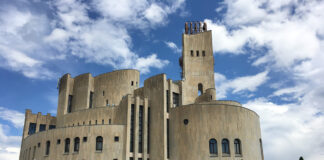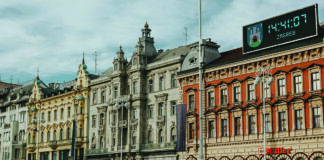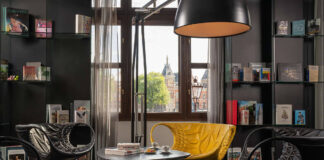By Rhiannon Eley
When you think of the best food in the world, what comes to mind? Perhaps it’s French haute cuisine or perfectly al dente Italian pasta? Maybe you’re thinking further afield and your mouth waters at the possibility of an aromatic bowl of Vietnamese pho or even a simple pleasure such as a sweet glass of Indian lassi. Whatever your fancy, I daresay that very few, if any, reading this thought about Albania. Well, dear readers, allow me to take you and your taste buds on a journey into post-Communist paradise.


Albania has a long coastline, which, naturally, means that seafood is a prominent feature on menus all along the Albanian Riviera. But Albania also shares a portion of Lake Ohrid in the west and Lake Shkodra in the north, as well as several lagoons in the center of the country, so freshwater fish are also a staple. On top of this, there are mountainous areas around Gjirokaster and in the north, which are perfect for raising cattle. The varied terrain in Albania means that a wide variety of fruits and vegetables are grown and the diet is often categorized as “Mediterranean” owing to the olive oil base found in many foods.. However, as well as obvious influence from Italy and Greece, Albania was under Ottoman rule for over 500 years, and the Turkish feel of the food is also clear.

My first foray into Albanian cuisine started in the capital, Tirana, at Merkata e Peshkut, where, as the name suggests, fish is their specialty. In fact, if you feel so inclined, you can pop downstairs from the restaurant to the market area and choose your fish. I took recommendations from the well-informed waiter and ended up with a feast of hot shrimp in tomato sauce with grated feta, seafood linguine, and grilled sea bream accompanied by delicately piped mounds of pureed carrot and beetroot. There was nothing avant-garde here, no fancy showmanship or Blumenthalian science experiments, but the fish tasted like the clearest waters of the Adriatic and the seasoning was perfect. And if this menu sounds like a lot for a solo diner, you are correct in your assertion. So, when the waiter kindly brought me a ball of lemon sorbet and declared its purpose was “for repairing the stomach”, it felt entirely fitting.
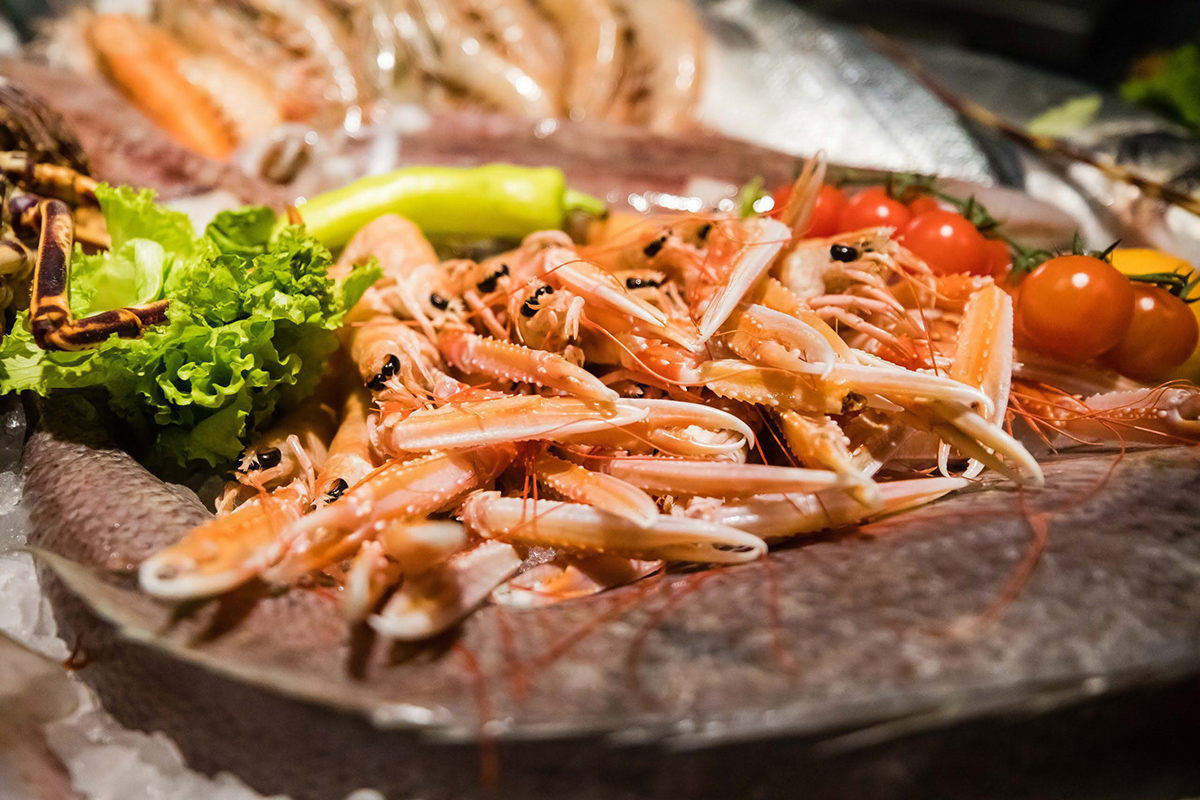
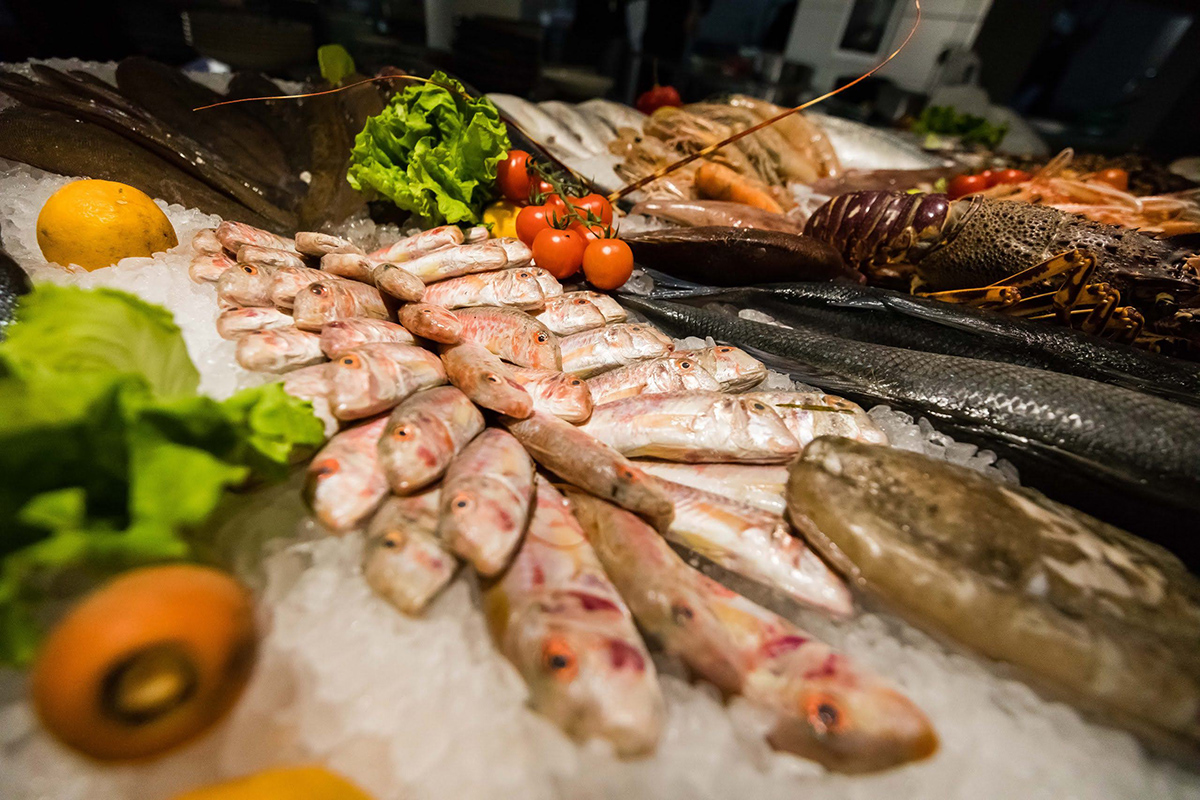
Despite having one of the oldest wine making traditions in the world (dating back 3,000 years to the Bronze age Illyrians), Albanian wine is not often seen outside of Albania, and even in its own restaurants you are far more likely to find a list of Italian staples with only the odd local offering. However, Albania is home to grape varieties which are simply not grown anywhere else on the planet, including the Pulës and Cërujë white grapes and the Vranac red grape. Albanica Winery, about two hours away from Tirana, provides a beautiful introduction to Albanian wine. The 12-hectare winery was opened by the Prifti family in 2006 but the neighboring Ardenica Orthodox Monastery dates back 750 years and so this is a historic terroir indeed. I was fortunate enough to enjoy a white, a rosé, and a red wine from the collection whilst overlooking the lush green slopes of the Ardenica which fall away to the basin beyond. The white wine was a Pulës 2021 which had notes of peaches and maple, in line with the deep straw color of the grape variety. The rosé was a 2020 blend which was honestly like putting my face into a bowl of fresh strawberries and pomegranate seeds, both of which are also grown around the vineyard. Finally, the 2014 Cabernet Sauvignon, which was surprisingly light, had cherries and prunes on the nose plus a hint of tobacco. Alongside the wines, I was treated to some local antipasti from the restaurant, which opened in 2019, including Fërgesë, which is made of peppers, tomatoes, onions, and gjizë (Albanian ricotta) cooked on the stove and then in the oven to make a relatively dense sauce. As well as the vineyards, there are also 570 olive trees used to make olive oil; and multiple fruit trees, melon, basil, and nuts, which are all used to make liqueurs. Although the winery is family owned and run, the Prifti family also employs many locals, including the man who served us. He has worked at the vineyard for a few years now and told me “I love being here. It doesn’t feel like work. It is really common here for local people to work in small local companies.”

For a lot of travelers, there is often one meal which stands out from a trip. For me, that meal was at Centrali in Sarandë, a coastal town just across the water from the luxurious island paradise of Corfu. The restaurant, which is just a short walk away from the stylish Buze Hotel, has been a feature of Sarandë for over 20 years, but it was remodeled a decade ago when German proprietor Vasil Kondi (Ladi, to his friends) and his brother moved from Hamburg, where they already owned two award-winning restaurants, to take on a new challenge. During the daytime, you might be forgiven for assuming the restaurant is just another seaside resort bar. But don’t be fooled by the down-to-earth exterior of a building tucked onto a corner of Sarandë’s main promenade. In the evening, the restaurant boasts an enviable terrace with soft lighting, classy table settings, and sweeping views down to the Ionian Sea. There’s no finer place to sit and enjoy a glass of Centrali’s exquisite Merlot which, like so many of their wines, is sourced from Albania’s best vineyards.
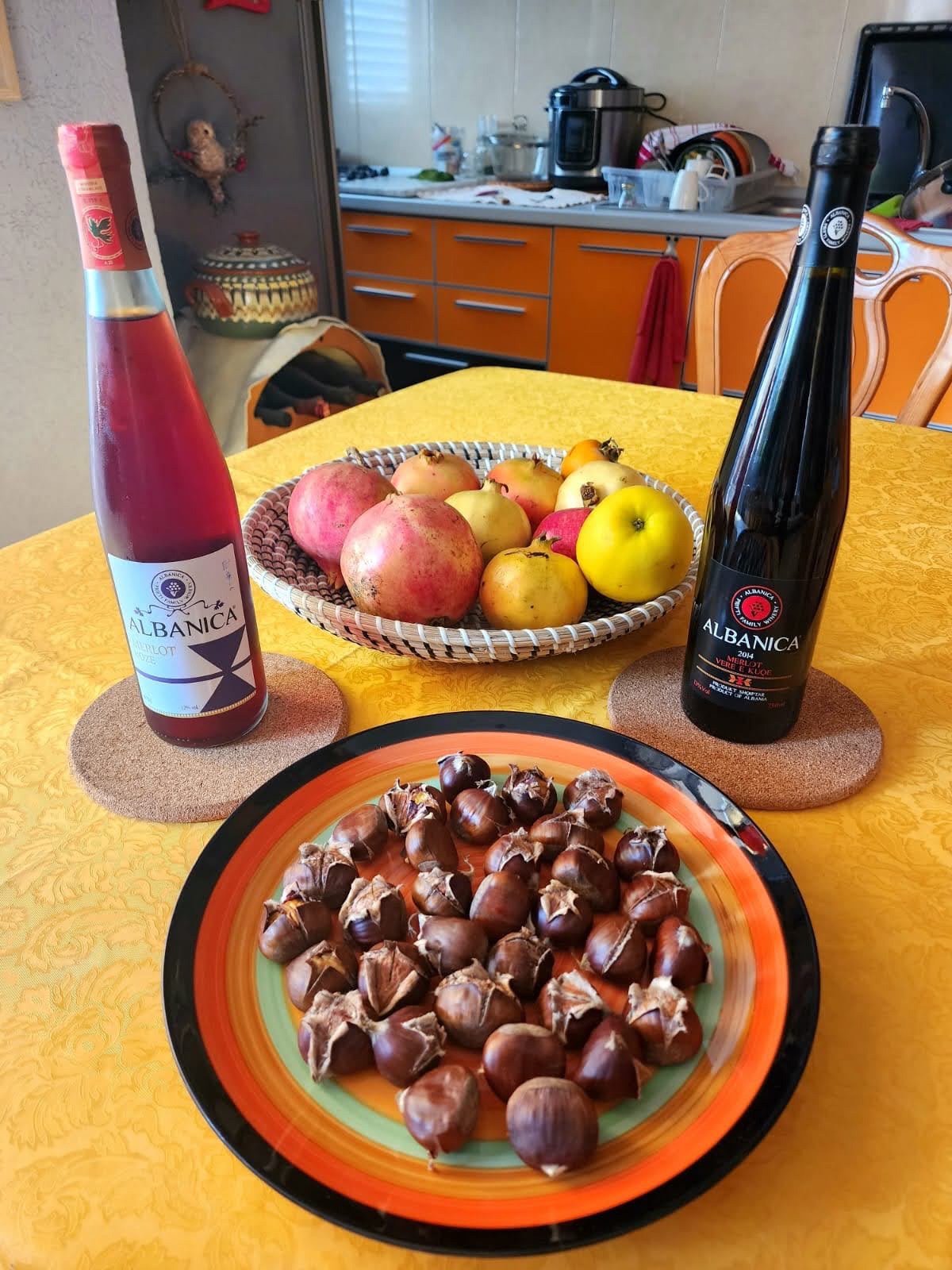
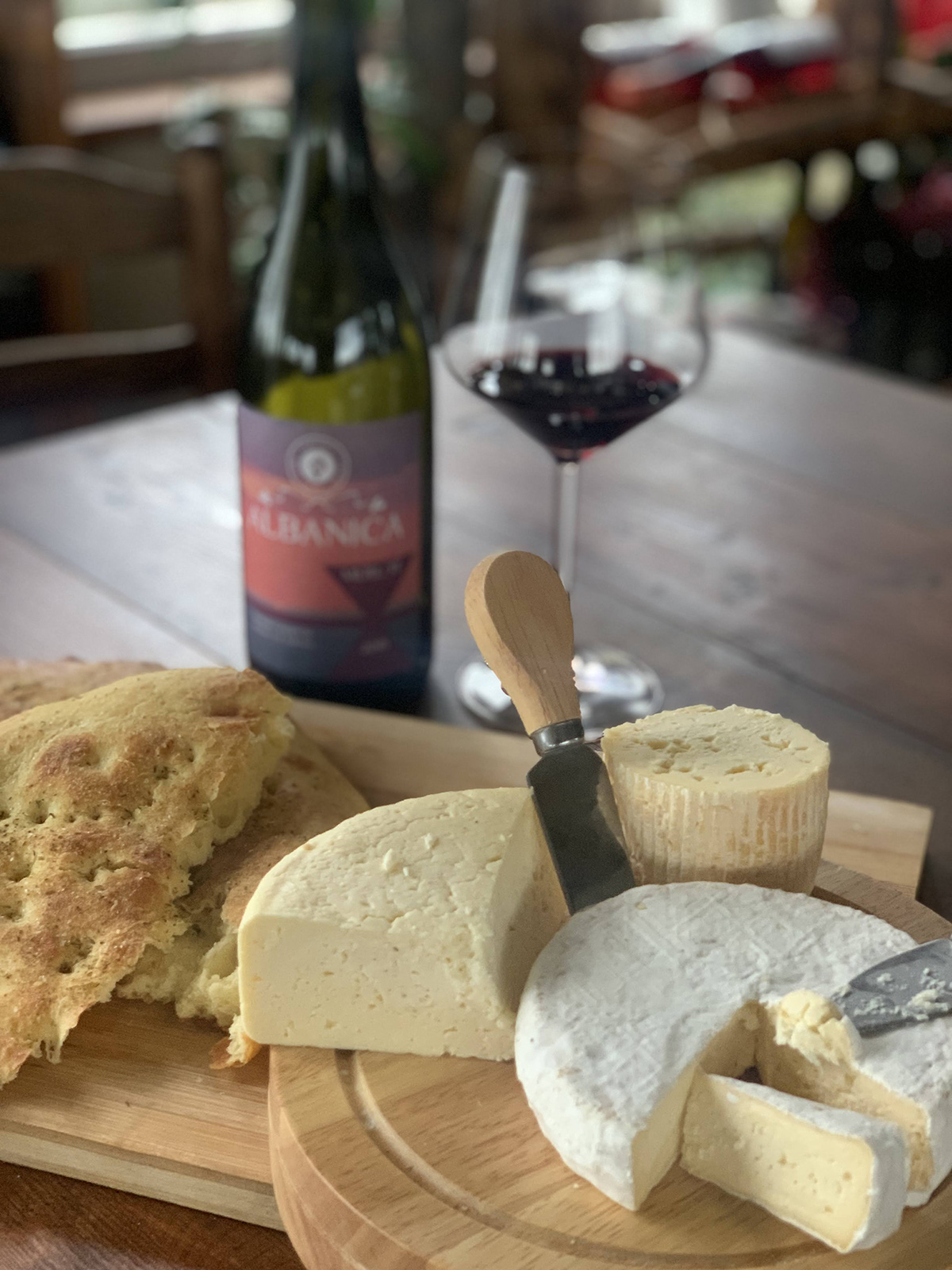

My first course was a simple bruschetta, but I knew by now that simple doesn’t equate with plain or boring in Albania, and I was not disappointed. The tomatoes and basil are grown less than three miles away and the bread is made on site. The dish was expertly seasoned at the table in a manner which allowed all the flavors to come through beautifully without competing with one another. I was next presented with crudo, which is like an Albanian version of ceviche. The raw seafood is dressed in olive oil and citrus juice. That’s all. With such basic ingredients, quality is vital and Centrali came up trumps. All the seafood on my plate was caught that morning from the seas around Sarandë; the olive oil came from the groves at Borsh, an hour up the road; and the lemons were grown around the city. The other colorful accompaniment to my crudo was pomegranate seeds, which feature heavily in Albanian cuisine. Pomegranates have been domesticated in Albania for centuries and, like many cultures, are a symbol of fertility as well as being an excellent flavor addition to a whole host of dishes.
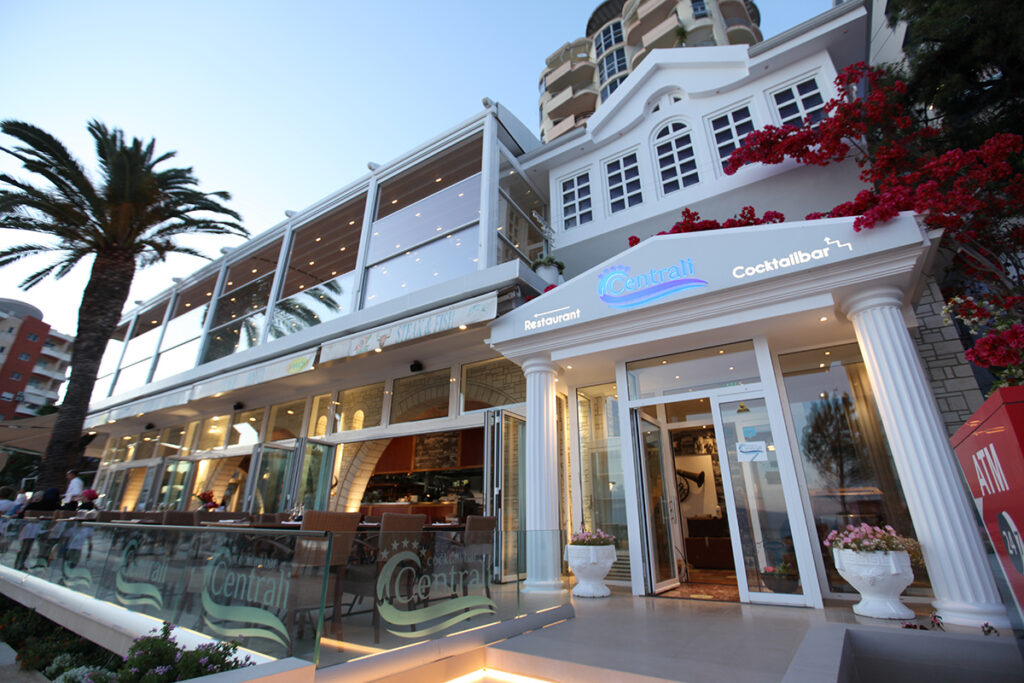
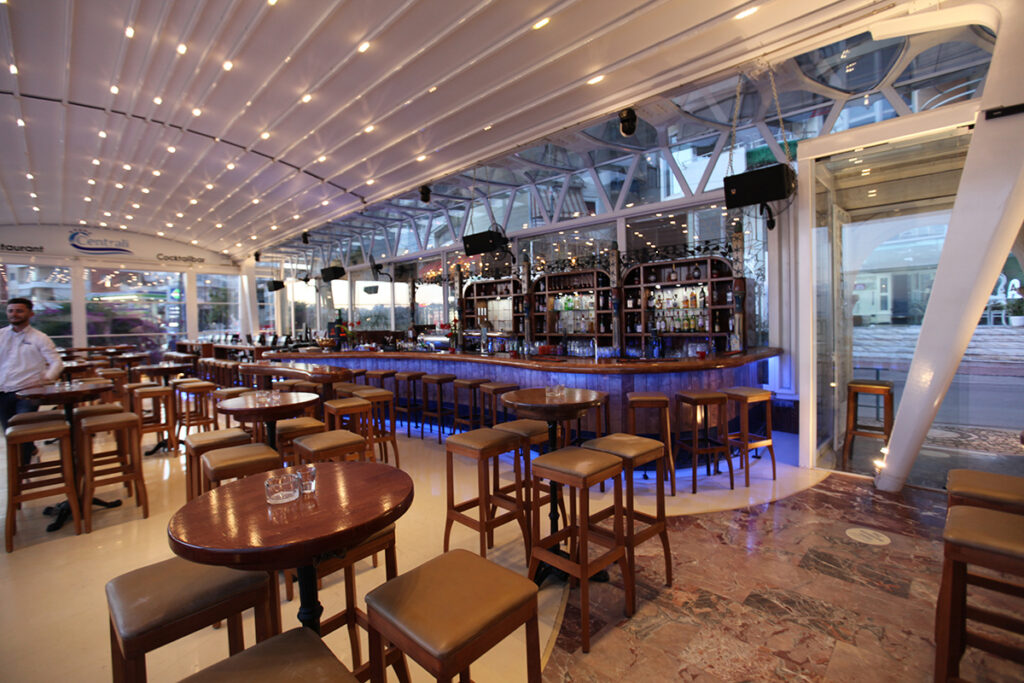
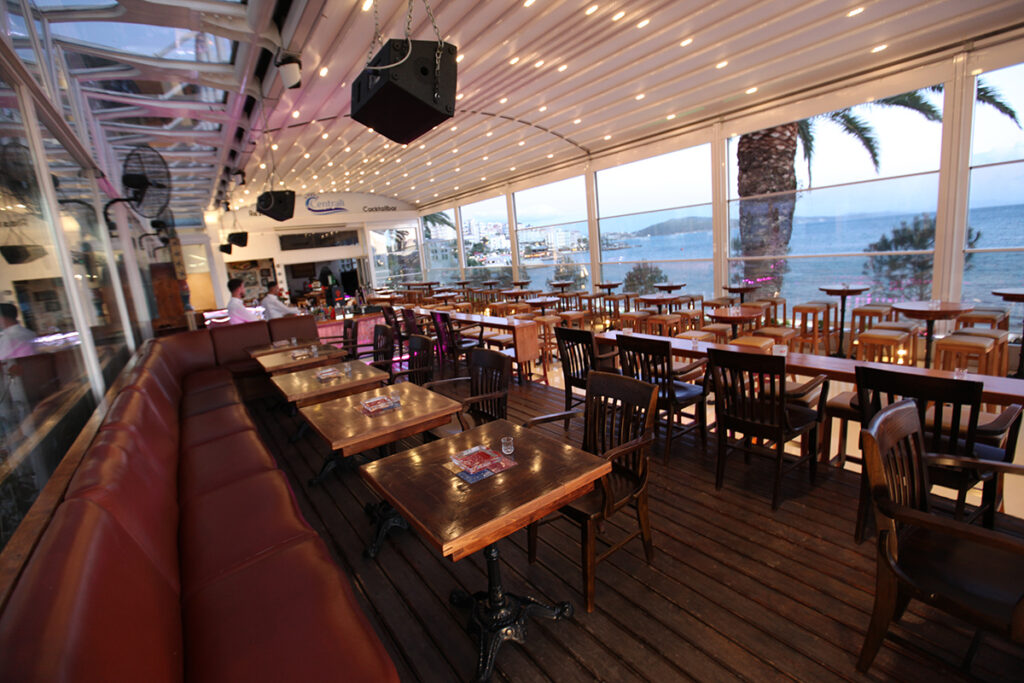
My main course was a filet of sea bream rolled and stuffed with rocket, truffle, and pecorino which melted in my mouth alongside perfect tournée cut, locally-grown vegetables. For dessert, the sugar top of the silky-smooth crème brulée cracked satisfyingly under my spoon. And just when I thought the meal was done, the waiter presented me with a choice of chocolates which are one of the few things not locally sourced: they come from Belgium. Although inspired by French truffles, the chocolates had a variety of caramel fillings because this is more stable than traditional ganache in the heat of Albania’s summers. I chose the caramel fig and immediately wondered why I had never tried this flavor combination before. I finished the evening with a glass of homemade mirto, a spirit made from the myrtles which grow wild near to Sarandë, and a chat with Ladi. I asked him what made him move from Frankfurt. He paused before saying, “you know, so much cuisine around the world focuses on looking extravagant or having unusual flavors. Here in Albania, the local produce is some of the best I’ve ever tasted and that’s what I want my restaurant to showcase”.
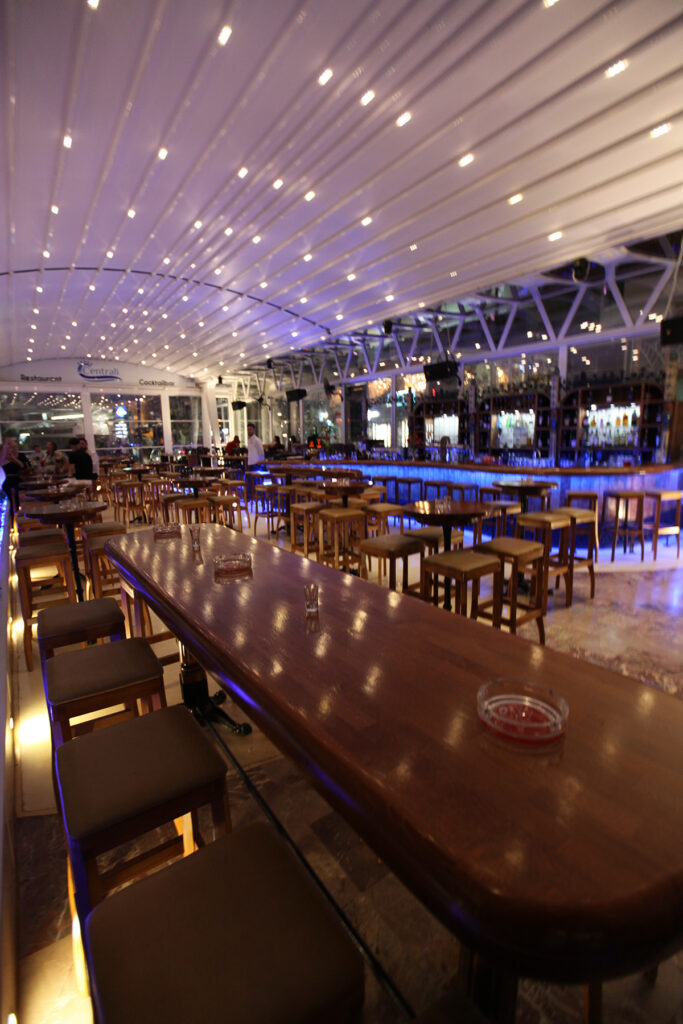
There is a proverb in Albania: bukë, kripë dhe zemër. It means bread, salt, and heart. Simple ingredients prepared with love and shared warmly with family, friends, and treasured guests. As I sit in my room at Buze, looking out at the sea, thinking how the water gently laps against the promenade with the sound of wooden fishing boats clacking together, I honestly can’t think of a better way to describe Albania and its food.







